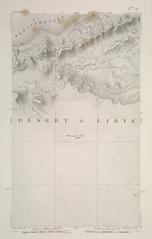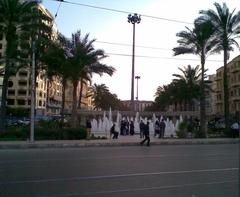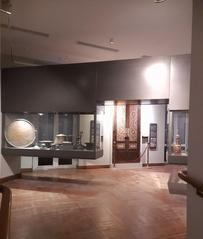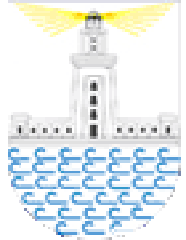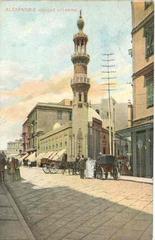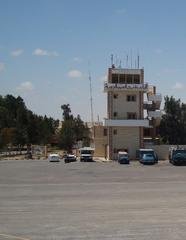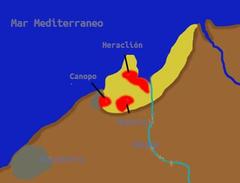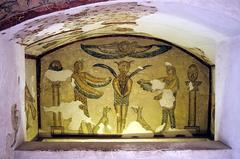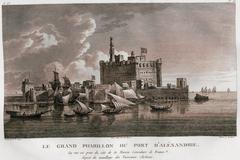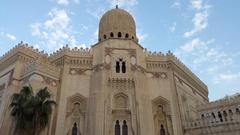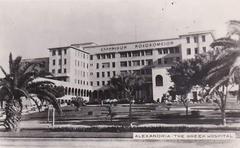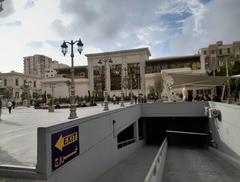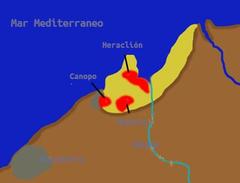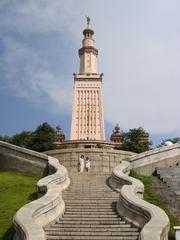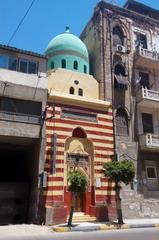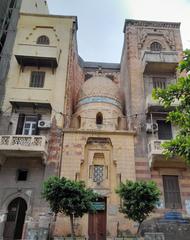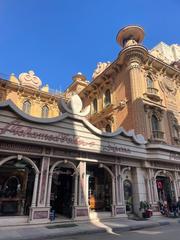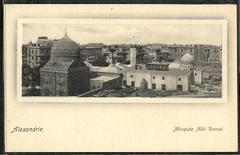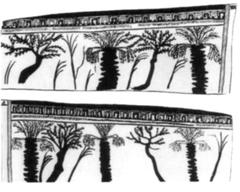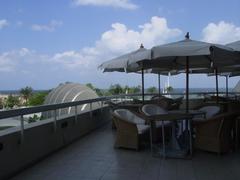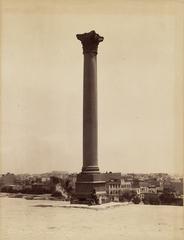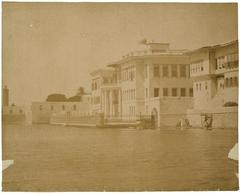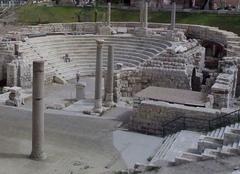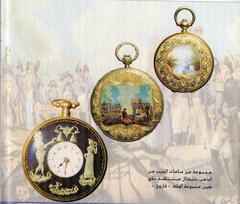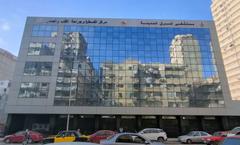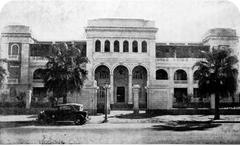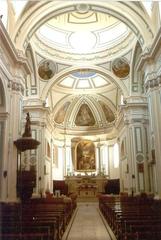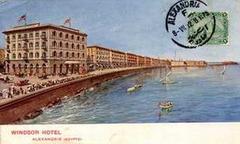African Centre For Women’s Healthcare Alexandria: Visiting Hours, Tickets, and Historical Significance
Date: 14/06/2025
Introduction
Located in the heart of Alexandria, Egypt—a city renowned for its ancient heritage and intellectual legacy—the African Centre For Women’s Healthcare (also known as the Alexandria Regional Centre for Women’s Health and Development, or ARC) serves as a vital institution dedicated to women’s health, empowerment, and social progress. Against the backdrop of Alexandria’s rich history, the Centre stands at the forefront of medical excellence, regional advocacy, and community engagement, offering a comprehensive range of healthcare services and educational opportunities (Britannica).
This detailed guide explores the Centre’s historical context, services, significance across Egypt and Africa, practical visitor information, cultural insights, and tips for making the most of your visit—whether you are a patient, healthcare professional, student, or cultural explorer.
Table of Contents
- Introduction
- Historical Background and Evolution
- Regional and Continental Significance
- Practical Visitor Information
- Cultural Insights and Guidance
- Facilities, Research, and Training
- Special Events, Guided Tours, and Visual Highlights
- Nearby Attractions in Alexandria
- Frequently Asked Questions (FAQ)
- Conclusion
- References
Historical Background and Evolution
Foundations of Women’s Healthcare in Alexandria
Alexandria’s status as a hub of learning and culture dates to its founding by Alexander the Great in 332 BCE. The city’s ancient medical and scholarly traditions, epitomized by the legendary Library of Alexandria, have long fostered innovation in healthcare (Britannica). Drawing on this legacy, the African Centre For Women’s Healthcare was established in the late 20th century as part of Egypt’s push to modernize and specialize healthcare with a focus on women’s needs (ScienceDirect).
Evolution and Modernization
The Centre’s development reflects the evolution of women’s healthcare in Egypt—from ancient practices found in texts like the Ebers Papyrus to the scientific advancements of modern obstetrics, gynecology, oncology, and preventive medicine. Supported by government initiatives and international collaborations, the Centre has become a regional leader in evidence-based care, research, and education (MedicalTourism.com).
Regional and Continental Significance
Addressing Women’s Health Challenges
Serving a population of over 110 million in Egypt and reaching communities across Africa, the Centre addresses critical issues such as maternal mortality, reproductive health disparities, gender-based violence, and barriers to healthcare access (ScienceDirect). Its advocacy extends to legal reforms, public health campaigns, and support for survivors of violence.
Integration with Medical Tourism
As Egypt grows as a medical tourism destination, the Centre attracts patients from across Africa and the Middle East seeking high-quality, affordable care. Many combine treatment with exploration of Alexandria’s iconic landmarks, supporting both health and local tourism (MedicalTourism.com; Rough Guides).
Practical Visitor Information
Location and Accessibility
The Centre is centrally located in Alexandria, on Abdel Hamid Badawy Street, near Ramleh Square and the Ibrahim Pacha Mosque. It is easily accessible by public transport, taxis, and private vehicles, with proximity to Borg El Arab International Airport for international visitors (MedicalTourism.com).
Accessibility features include ramps, elevators, and assistance for individuals with disabilities, underscoring the Centre’s commitment to inclusivity.
Visiting Hours and Admission
- General Visiting Hours: Monday to Friday, 9:00 AM to 5:00 PM (some programs may operate Monday to Saturday or Sunday to Thursday, so check specific appointment details).
- Closed: Weekends and public holidays.
- Admission: Entry to public areas (e.g., digital library, exhibitions) is free. Specialized clinics, conferences, and training may require prior registration or fees.
Note: Appointments are necessary for medical consultations. Guided tours and group visits must be booked in advance.
Services and Facilities
- Medical Care: Comprehensive services in obstetrics, gynecology, oncology, reproductive medicine, and preventive health.
- Consultation Rooms & Clinics: Outpatient care, screenings, and counseling.
- Research Laboratories: Focused on women’s health across the lifespan.
- Training and Conference Halls: For workshops, seminars, and professional development.
- Information Resource Centre: Digital library and archives.
- Community Spaces: Peer support and outreach.
- Multilingual Staff: Arabic, English, and French fluency for international visitors.
Accommodation and Travel Tips
- Nearby Hotels: Options range from budget to luxury, many with amenities for medical tourists and shuttle services.
- Best Times to Visit: Spring (March–May) and autumn (September–November) for mild weather.
- Transportation: Taxis, buses, trams, and ride-hailing apps are widely available. The main tourist office near Ramleh Square offers maps and assistance (Egipto Exclusivo).
Safety, Ethics, and Payment
- Safety: Alexandria is generally safe, but visitors should follow standard precautions.
- Ethical Standards: The Centre upholds patient confidentiality, informed consent, and non-discrimination.
- Payment: Accepted methods include cash, credit cards, and bank transfers. International patients should clarify insurance and payment details in advance.
Cultural Insights and Guidance
Cultural Significance and Community Engagement
The Centre is deeply embedded in Alexandria’s cosmopolitan social fabric, advancing public health and gender equity through conferences, outreach, and advocacy (Wikipedia; PennIUR). Initiatives include mobile clinics, health campaigns, and partnerships with NGOs and universities.
Local Customs and Etiquette
- Dress Code: Modest attire is essential, especially within healthcare settings. Women should cover knees and shoulders; men should avoid shorts (The Egyptian Traveler).
- Photography: Permitted only in designated areas; always ask permission before photographing people or sensitive spaces.
- Respect for Privacy: Essential in all clinical zones.
Language and Communication
Arabic is the primary language, but English and French are widely used by staff. Visitors are encouraged to greet staff politely (“Salam Alaikum”) and use formal address.
Facilities, Research, and Training
Research Initiatives
The Centre conducts pioneering research on:
- Maternal and child health
- Reproductive and adolescent health
- Violence prevention
- Chronic disease management
- Social determinants of women’s health
Collaboration with international organizations and academic institutions enhances its impact regionally (ScienceDirect).
Training and Professional Development
Programs are available for:
- Healthcare professionals (clinical skills, leadership)
- Researchers and academics (methodology, publication)
- Community leaders (public health advocacy)
Workshops, online modules, and conferences are open to local and international participants; many require advance registration.
Special Events, Guided Tours, and Visual Highlights
- Guided Tours: Available by appointment for groups and researchers.
- Educational Workshops and Seminars: Focused on women’s health issues and open to the public when scheduled.
- Annual Events: Health awareness campaigns, conferences, and wellness fairs.
- Visuals: Modern architecture and landscaped gardens provide attractive photographic opportunities (with permission); virtual tours and images are available on the official website and social media.
Nearby Attractions in Alexandria
Combine your visit with cultural exploration:
- Bibliotheca Alexandrina: Modern reimagining of the ancient library.
- Citadel of Qaitbay: 15th-century fortress on the Mediterranean.
- Montaza Palace: Lush gardens and royal history.
- Corniche Waterfront: Scenic promenade and beaches.
- Ibrahim Pacha Mosque: Architectural landmark directly opposite the Centre.
For detailed travel advice and city maps, consult local tourism offices (Rough Guides).
Frequently Asked Questions (FAQ)
Q: What are the Centre’s visiting hours?
A: Monday to Friday, 9:00 AM to 5:00 PM (some programs may vary). Closed weekends and public holidays.
Q: Is entry free?
A: Yes, for public areas. Specialized services may require registration or fees.
Q: How do I book a tour or appointment?
A: Contact the Centre via their official website or administrative office.
Q: Is the Centre accessible for people with disabilities?
A: Yes, with ramps, elevators, and staff assistance.
Q: What languages are spoken?
A: Arabic (primary), with English and French support.
Q: Can I volunteer or intern at the Centre?
A: Yes; opportunities are available via the human resources office.
Q: Are there nearby attractions?
A: Yes; Bibliotheca Alexandrina, Citadel of Qaitbay, Montaza Palace, and more.
Conclusion
The African Centre For Women’s Healthcare in Alexandria exemplifies the dynamic intersection of tradition and innovation in women’s health. Its contributions to care, research, advocacy, and community outreach resonate locally and across Africa. Whether seeking medical services, professional training, or cultural enrichment, visitors will find the Centre welcoming and impactful.
Plan your visit by confirming hours, booking any necessary appointments or tours, and exploring Alexandria’s remarkable historical and cultural sites. For the latest updates, event information, and virtual tours, access the Centre’s official website, follow them on social media, and consider downloading the Audiala app for personalized assistance and news.
References
- Britannica
- Wikipedia
- ScienceDirect
- MedicalTourism.com
- Rough Guides
- PennIUR
- Travel.gc.ca
- Egipto Exclusivo
